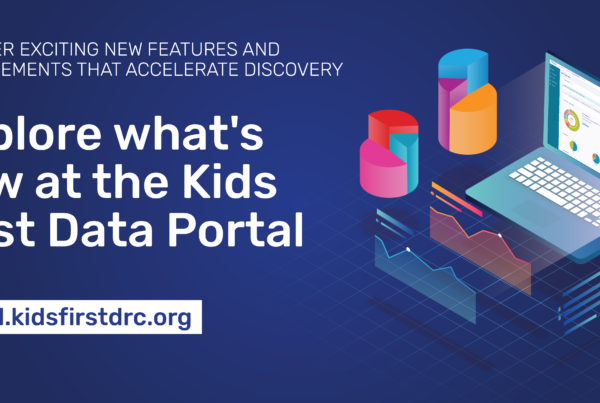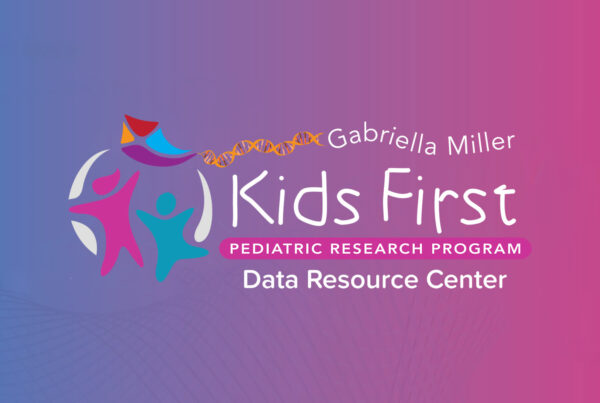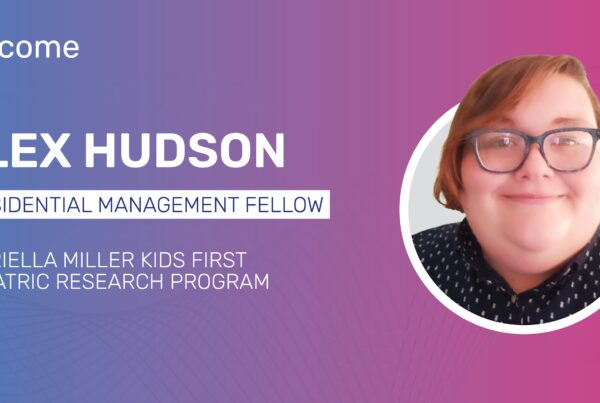Since 2011, the Society for Neuro-Oncology has hosted a biennial conference for pediatric basic and translational neuro-oncology (PedSNO). The conference encourages the sharing of ideas, results, and new collaborations, and offers attendees a state-of-the-art update in the field of pediatric brain tumor research. The 5th PedSNO Conference was held at the Westin St. Francis Hotel in San Francisco, CA on May 3-4, 2019.
At this premiere conference for researchers and clinicians working on brain and central nervous system (CNS) tumors in children and adolescents, researchers representing the NIH Common Fund-supported Gabriella Miller Kids First Data Resource Center (Kids First DRC) delivered presentations and submitted posters to promote the work of the Kids First DRC, our clinical and genomic harmonization pipelines, and partnerships with consortia efforts to address some of the most deadly brain tumors in children and adolescents.
Kids First DRC Principal Investigators Adam Resnick, PhD and Allison Heath, PhD of Children’s Hospital of Philadelphia presented the following:
Adam Resnick, PhD; Children’s Hospital of Philadelphia
- Presentation The Pediatric Brain Tumor Atlas: An Initiative by the Children’s Brain Tumor Tissue Consortium and Pacific Pediatric NeuroOncology Consortium
- Poster Pan-Omic analysis of diffuse intrinsic pontine glioma from children enrolled in PNOC003 precision medicine trial identifies opportunities and challenges in clinical implementation of a multi-omics sequencing approach
Allison Heath, PhD; Children’s Hospital of Philadelphia
- Poster Gabriella Miller Kids First Data Resource Center: Harmonizing Clinical and Genomic Data to Support Childhood Cancer and Structural Birth Defect Research
In September of 2018, The Kids First DRC’s consortium partner, the Children’s Brain Tumor Tissue Consortium (CBTTC), launched its Pediatric Brain Tumor Atlas, a fully-harmonized collection of match tumor/normal, WGS, RNAseq, and miRNA-Seq data representing more than 30 different pediatric brain tumor types collected from over 1000 study participants. Included in this dataset, which is currently the largest collection of harmonized pediatric brain tumor data on the planet, are aligned/unaligned reads, histology images, operation reports, pathology reports, gVCF, radiology images, and radiology reports – all available to researchers in real-time, with no delay in public release.
Access to data within the PBTA is managed by the CBTTC’s data access committee, which accepts requests for data year-round. To request access to CBTTC data, visit https://redcap.chop.edu/surveys/?s=A7M873HMN8.
To learn more about the PBTA, and all other datasets within the Kids First DRC’s Data Resource Portal, visit https://kidsfirstdrc.org/support/studies-and-access/










